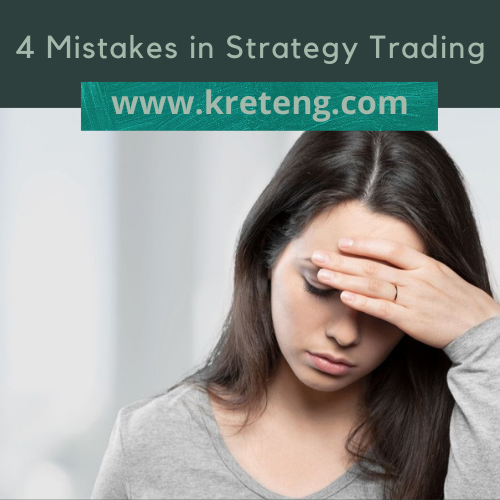Four principles for successful trading
Why do successful traders keep making money year after year while beginners lose everything in the first few months? What Do Most Beginners Do Wrong? How do successful traders know what is right?
My colleagues and I are often asked how to be successful in trading. In fact, we were asked this question so many times that I finally decided to write a trade report; Reports that give you direct, easy-to-understand advice on how to become a better trader.
Unlike most trading advice articles, this report is written in clear and simple English. I will explain the gist of the matter briefly and conclusively. You will read about the big mistakes that keep traders from making money and learn the basic principles that it took successful traders years and thousands of dollars to discover. All the facts in this report are based on years of observation and can be easily verified.
Ever felt like you had finally learned how to predict market movements after a successful trade? And then just a few days later hopeless – after a devastating loss?
Now imagine the feeling of a trader who has spent years studying price movements, buying expensive indicators, taking expert advice and attending seminars. However, this merchant continued to lose money until all of his savings were used up. Then he collected more money, lost everything again – all the while wondering why, contrary to all the promises of the teachers, he could not turn trading into a profitable business. Still, trading is just as understandable, predictable and profitable as any other business.
Imagine that after years of investing in trading, you still cannot understand how the market works. How frustrating is that?
Or worse, what if, driven by emotion, you lose control and all of your savings? Do you have a contingency plan to protect yourself?
How quickly, if at all, can you recover from a major loss?
Not only beginners, but also “experienced” traders tend to ignore or forget about measures to protect their capital from this type of disaster – until a disaster strikes. It was too late by then and the damage had already been done.
But that will never happen to me!
After working with more than 2000 retailers and institutional customers in Europe and the United States, we have found that 9 out of 10 retailers experience losses that will end up costing them between thousands and millions of dollars.
This does not include the money that is spent on manuals, training courses, seminars or months of meticulous market analysis.
The losses caused by bad trading practices vary from case to case. Whatever the losses, they are always too high for the traders involved. Typically, people lose all of their available money. Worse still, sometimes they go a step further and go into debt.
Take a look at these statistics:
90% – 95% OF ALL TRADERS LOSE MONEY (Source: Ryan Jones, author of The Trading Game, Playing by the Numbers to Make Millions)
70 percent of day traders lose money (source: 1999 study by the Association of North American Securities Administrators (NASAA))
95 percent will fail within the first two years (Source: Harvey Houtkin, February issue of Securities Regulations and Legal Report)
What do these statistics mean for you?
The above facts clearly show that most people underestimate the risk of trading. In most cases they are simply misled by advertisements from brokers and consultants. Brokers usually do not care about their long-term success, because their goal is to get back the money invested in acquiring new customers quickly. That’s why they want you to start trading as soon as possible. To achieve this goal, brokers provide novice brokers with a minimum of information sufficient to place trades (and thus earn the commission the broker lives on) and let them fly blindly in the market. This immoral practice has even drawn the attention of various government agencies that oversee and oversee securities trading. Unfortunately, there has been little success in restricting these practices.
The sad truth is that most trading advisors sell trading methods that don’t work. Of course, this method is not only presented as more successful, but also very profitable. Usually customers potential is shown multiple times when an indicator (or some other analytical method
de) occurs to predict a good trading opportunity. What happens is indescribable, all instances where the method causes catastrophic trades.
In addition, trading experts avoid selling their strategy as formally defined objective criteria for market entry. The main argument is that indicators should be applied differently in different situations. Gurus claim that no algorithm-based system can replace human intelligence. Of course, such an excuse comes in very handy. Whenever an advertised trading method produces disastrous results, they blame the trader, not the system. Since everything depends on the subjective determination of the trader, it is impossible to prove that it is an unsuccessful method. You are the only person responsible for the loss.
The most annoying thing about this situation is that with a little proactive analysis and review, most of these disasters and unnecessary costs can actually be easily and cheaply avoided or massively reduced.
Why early traders are so vulnerable
Today’s market is becoming more and more efficient. To survive in this highly competitive environment, unconventional tools and methods are required. However, contrary to common sense, beginners don’t even try to use the latest market analysis tools. Instead, they use a method that worked pretty well 30 years ago but is completely useless today.
 KRETENG.COM Website Review Bisnis, Tempat dan Harga Produk Terbaik di Indonesia
KRETENG.COM Website Review Bisnis, Tempat dan Harga Produk Terbaik di Indonesia

